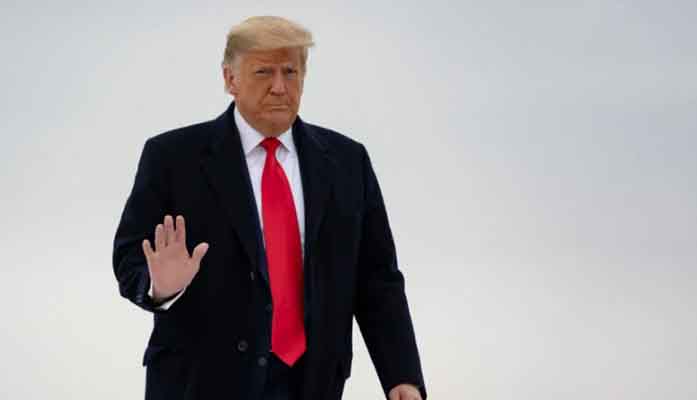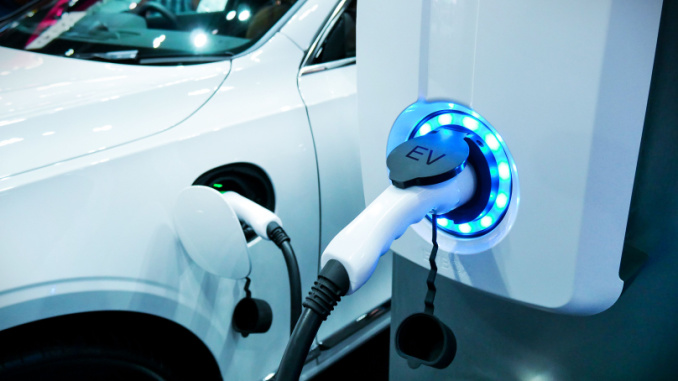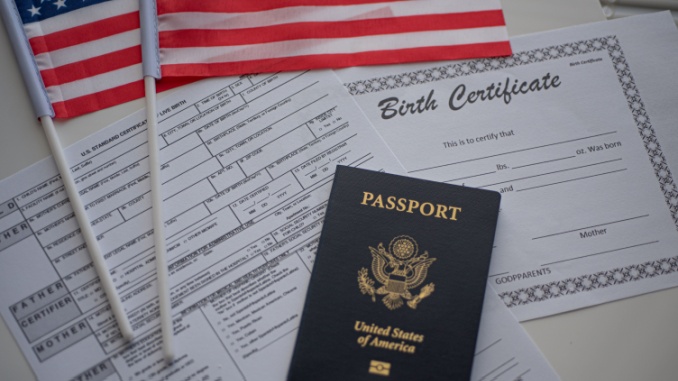
by Dr. Thomas Patterson | Mar 29, 2025 | Opinion
By Dr. Thomas Patterson |
President Trump, by his own declaration, loves tariffs. In fact, tariff is his “favorite word.” Tariffs purportedly produce funds, “billions and billions, more than anybody has ever seen before,” which can be used for essential spending or to reduce taxes and meanwhile will “bring back jobs.”
The president is all in on his enthusiasms. As matters now stand, he is imposing both universal baseline as well as country-specific tariffs, affecting more than $1 trillion of imports. This compares to the mere $380 billion in tariffs passed in 2018 and 2019 by the first Trump administration but will rise to $1.4 trillion when/if the temporary exemptions for Mexico and Canada expire in April.
There is a logic to tariffs which appeals to those with a protectionist bent. If foreign producers are selling in your country and taking profits which could otherwise be earned by domestic enterprises, why not make the cost of doing business higher for them and keep the profits at home?
Yet the history of tariffs is, to put it kindly, dismal. The 1930 Smoot-Harley tariff is America’s best known and most instructive experience with protectionism. In 1929, the League of Nations passed a resolution declaring that tariffs were destructive and should be ended by all. When Smoot-Hawley was introduced, Franklin Roosevelt campaigned against it. After the bill passed, 1,028 economists and even some business leaders like Henry Ford urged a veto.
President Hoover termed the measure “vicious, extortionate and obnoxious.” He signed it anyway at the urging of his advisors. Americans, especially the agricultural sector, were facing a perceived problem with overproduction, mainly due to electrification and other laborsaving innovations. Republicans generally agreed that prices were too low, and it would help pull us out of our economic slump if American producers were shielded from foreign competition.
Big mistake. Trading partners had warned of retaliation and indeed boycotts and reciprocal trading restrictions soon broke out. Canada, our most loyal trading partner, imposed tariffs on 30% of our products and formed closer economic ties to the British empire. France, Britain, and Germany all formed new trading alliances.
Yet initially, the medicine seemed to be working. Factory payrolls, construction contracts, and industrial production all profited from the reduced market competition.
But the loss of the inherent advantages of trading soon became clear. From 1929 to 1933, U.S. imports fell 66% and exports decreased 61%. World trade nearly ground to a halt, falling by two-thirds from 1929 to 1934.
Unemployment was about 8% when Smoot-Harley was enacted, but the promises to lower it further never panned out. The rate jumped to 16% in 1931 and 25% in 1932-33, falling back to pre-depression levels only during World War II.
Tariffs didn’t cause the Great Depression, but they clearly deepened and prolonged it. Without Smoot-Hawley, it might have just been another temporary recession, not much worse than many other economic downturns in our history.
The take-home message is that free trade is a voluntary interaction that reliably promotes prosperity, both in theory and in practice. It is a classic win-win for participants, in contrast to protectionism which is based on the principle that the stronger party wins by defeating the weaker one.
The 2018-19 tariffs imposed by Trump and expanded by the Biden administration proved the point once again, by reducing long-term GDP by 0.2% and resulting in the loss of 142,000 full-time equivalent jobs.
Still, Trump favors strength and domination, based on negotiations where he “holds the cards.” The lack of success last time has not dissuaded him from unleashing a barrage of tariffs with impositions, pauses, increases, suspensions, and escalations that have left producers around the world desperately scrambling to protect their businesses by anticipating his next move.
Trump is playing with fire here. If he does ignite a trade war that results in another downturn, he may find that the American economy is not as resilient as it once was. Decades of uncontrolled deficit spending have left us deeply in debt and without the reserves necessary to withstand much more fiscal abuse.
The lessons of history and the laws of economics are clear. Tariffs don’t work. Proceed with caution.
Dr. Thomas Patterson, former Chairman of the Goldwater Institute, is a retired emergency physician. He served as an Arizona State senator for 10 years in the 1990s, and as Majority Leader from 93-96. He is the author of Arizona’s original charter schools bill.

by Dr. Thomas Patterson | Mar 15, 2025 | Opinion
By Dr. Thomas Patterson |
When Donald Trump assumed the presidency, two allies of the U.S., Israel and Ukraine, were mired in bloody wars with ancient enemies. Both desperately needed more military aid in the effort to defeat their heavily armed foes.
Biden had granted both only enough military aid to enable them to not lose, but not enough to win. Moreover, the arms they received came with the condition that they not be used to inflict serious damage to their enemy. Trump could have helped turn the tide, but instead he snatched defeat from the jaws of victory.
The Oct. 7 surprise attack by jihadists on innocent Israelis was just the latest in a centuries long string of atrocities inflicted by Muslim terrorists who devote their lives to killing Jews. Bitter experience had taught Israelis that agreements with terrorists were essentially useless so, for the safety of his people, President Netanyahu resolved to destroy Hamas.
Soon after hostilities began, the Biden government and other erstwhile friends began demanding a cease-fire, thwarting the original war aims. Grief-stricken Israelis understandably became restive over their families and friends being held hostage and demanded negotiations to secure their release.
Yet for terrorists, hostages are a key tactic in waging successful warfare. Because of the sharp contrast in how the two sides value human life, jihadists are able to command one-sided hostage swaps of up to 100 terrorists returned to duty for each civilian exchanged, plus other concessions.
But help was on the way. Our new president posted that none of this would have happened had he been in office and that he would now personally end the conflict. Ignoring the established wisdom of not negotiating with hostage takers, he vowed to apply his famed dealmaking skills to the problem, earning short term praise while simultaneously ensuring that there would be more hostages in the future.
So far, the promises aren’t working out. The war hasn’t ended. Hamas shamefully cheated on the hostage swap, retaining live hostages to maintain pressure on Israel. Worse, the Israelis will almost certainly not be free from the threat of attacks by Hamas and other Iranian proxies.
Meanwhile, Ukraine had suffered an unprovoked attack three years earlier by Russian strongman Vladimir Putin, who correctly surmised that the fearful and weak Biden administration would not provide robust aid and that without U.S. support, “Ukraine could not win a prolonged war against Russia”.
When Trump was elected, victory was at least thinkable with some additional aid because Ukraine’s troops had fought so courageously to defend their nation and their freedom.
Trump, however, saw it differently. This was another dealmaking opportunity. In January, he had told Putin, “We can do it the easy way or the hard way.” Yet a month later he was putting greater pressure on Kyiv to make concessions than on Moscow
When Zelenskyy balked at prospectively agreeing to ultimatums produced by the Trump-Putin negotiations, from which he was excluded, his relationship with Trump cratered. Suddenly, according to Trump, Zelensky was a badly dressed “modestly successful comedian” who had talked Biden out of $350 billion in military aid (a huge exaggeration).
Zelensky was charged with showing insufficient “respect” and “gratefulness” to his new masters. More preposterously, Trump wrote that Zelensky shouldn’t have started the war in the first place, which of course he didn’t do.
Luckily, Trump wrote, “We are successfully negotiating an end to the war with Russia, something all admit only ‘TRUMP’ and the Trump administration can do.” To teach Zelensky a lesson, Trump temporarily shut off all munitions and intelligence aid to Ukrainian troops.
Zelensky is being forced into the defeat option, which had been available to him all along. He stands to lose a big chunk of his country and the goals for which his people sacrificed so much.
Netanyahu was also put in a difficult position by Trump’s “rescue” and the relentless pressure to settle with his oppressors. He can now look forward to a future of more jihadist attacks and more hostage-taking. Tehran and Moscow are reportedly happy with the results.
We may come to regret insisting on domination rather than support of our allies. In a changing world, you can’t have too many friends.
Dr. Thomas Patterson, former Chairman of the Goldwater Institute, is a retired emergency physician. He served as an Arizona State senator for 10 years in the 1990s, and as Majority Leader from 93-96. He is the author of Arizona’s original charter schools bill.

by Dr. Thomas Patterson | Feb 28, 2025 | Opinion
By Dr. Thomas Patterson |
When electric vehicle subsidies were introduced around 2010, they were sold as a short-term fix to allow the undeveloped EV market to get its legs and compete with Internal Combustion Engines (ICE). The subsidies were justified on the basis that EVs, emitting no tail pipe emissions, would reduce global warming, later to be known as climate change.
Fifteen years later, far longer than any normal probation period, the experiment has clearly not worked. According to the Expedia Automotive Trend Report, only 7.9% of new car registrations in 2024 were for EVs. Just 9.3% of the 286 million cars on the road were EVs, paltry numbers indeed considering the strenuous efforts of the federal government to stoke their success.
Purchasers of new EVs are provided with a $7,500 federal subsidy, plus state subsidies where available. Used cars can pull down up to $4,000 in purchasing aid. Commercial vehicles over 14,000 pounds can receive $40,000. Home chargers are eligible for $1,000.
Even though the fuels of ICE cars are heavily taxed, the charging stations for EVs are subsidized too. Battery factories get subsidized. Then there is the whole sorry history of boondoggle giveaways subsidizing EV production and failed loans beginning with the notorious Solyndra debacle.
Canoo lost $900 million and produced 122 cars. Taxpayers got stuck with hundreds of millions of dollars in failed loans from Lordstown Motors, which manufactured 56 vehicles total.
EV drivers don’t have to chip in for road construction and maintenance costs, since they don’t pay gas tax or any fuel-based funding source. On the contrary, theirs is heavily subsidized. Their out-of-pocket cost is equivalent to $1.21 per gallon, but direct and indirect subsidies from government and utilities push the true cost to $17.33 per gallon, according to the Heritage Foundation.
EVs require a lot of juice to operate. Even though the EV market has failed to develop as expected, many major utility companies are already struggling to meet the increased demand. They warn that future EV mandates will require greatly expanded infrastructure for electricity generation and charging stations.
The Texas Public Policy Foundation calculates EV cars would cost $48,688 more without the production and purchase subsidies alone. Maybe all this public expense would be justified if EVs substantially reduced hydrocarbon emissions, but they don’t.
These calculations are tricky because net operating emissions obviously depend on the fuels used to produce the electricity. The disappointing failure of solar and wind to supply abundant, reliable energy and our still-limited access to nuclear energy have resulted in fossil fuels producing most of the electricity used to propel these “emission free” cars.
Moreover, the battery manufacturing and disposal processes are intensely energy consuming. Most studies show little, if any, overall benefit from switching to EVs. Yet the overwhelming evidence that EVs cost a ton and do’’t do much good have so far not deterred the ambitions of government and the enviros to force all or most Americans into them.
The Environmental Protection Agency’s greenhouse gas emission standards still require that 32% of new automobile sales be EVs or hybrid by 2027, a fourfold increase in two years from now! By 2032, 70% of sales must be electric. By 2050, we must be emitting no carbon at all.
Here’s a newsflash. That is’’t going to happen. The world’s biggest polluters (China and India) aren’t on board and even in the West, citizens are clearly not willing to crater their economy for a dubious ideological goal with better solutions available.
Meanwhile, government continues mandating that car companies sell EVs to customers who simply do’’t want them even with the massive incentives. What could go wrong?
Companies that can are fleeing the market. Ford projects that it will lose $5.5 billion on EVs this year, which they are forced to produce to meet the EV fleet mandates. That’s $60,000 per car sold, an amount they seemingly anticipate will eventually be bailed out by government.
Look, it’s America. EVs are actually cool and fun to drive. People who want them and can afford them should have them. But there is no reason that the rest of us, who derive no benefit, should have to pay for them.
Let the bubble burst.
Dr. Thomas Patterson, former Chairman of the Goldwater Institute, is a retired emergency physician. He served as an Arizona State senator for 10 years in the 1990s, and as Majority Leader from 93-96. He is the author of Arizona’s original charter schools bill.

by Dr. Thomas Patterson | Feb 14, 2025 | Opinion
By Dr. Thomas Patterson |
“Rust Belt city benefits from Bidenomics” headlined an article last month in the Wall Street Journal, detailing the economic rebound being experienced by Terre Haute, Indiana, a former manufacturing center in decline for many decades.
Suddenly, due to an infusion of stimulus funding from the 2021 American Rescue Plan Act and the 2022 Inflation Reduction Act, this community is experiencing such a windfall that the mayor is “running out of room on his whiteboard” tracking infrastructure projects. New factories are being built, new home starts have tripled, long vacant properties are rehabbed. The venerable Charlie’s Pub and Grub will get a new roof and awnings.
The new initiatives in Terre Haute are part of the hundreds of billions of dollars in federal subsidies supporting manufacturing, housing, and clean energy ventures doled out during the Biden administration.
But one question was never asked. Where is all this money coming from? You might think “taxpayers,” but the truth is that we spend $2 trillion more every year than we take in. There are no available tax-derived funds available to distribute.
Instead, we spend fantasy money, loans charged off to future generations who don’t vote yet. We really do love them, just not as much as the luxury of getting to have things that we don’t have to pay for.
The Terre Haute story, just one of thousands like it, contains several insights into why spending cuts are so difficult and rare. The public habits of mind we have developed about the role of government and the responsibility of government to live within its means are the ultimate reason we have fallen into such fiscal danger.
Earlier generations of Americans would have been alarmed, not heartened, at the gigantic unfunded Biden spending surge. We instead assume that none of us should endure hardship or decline and that if we do, it is the duty of government to rescue us. Personal responsibility is outmoded.
Government has never been known for its efficiency, so all these “free” things are actually quite expensive. The good news is we still have a productive economy that has generated 1.4% revenue growth, net of inflation, since 2001, the last year the budget was balanced. Reasonably prudent governance would have achieved budget surpluses.
But that’s not what happened. Politicians spent so much feeding our welfare addiction that spending grew by an inflation-adjusted 3.0% annually, creating the true crisis we now face. Present projections by the Congressional Budget Office indicate spending will continue to outpace revenues, absent reform. Our national debt stands at an unimaginable $36 trillion, while borrowing costs are rising.
We’re in deep trouble. It may well be too late to avoid fiscal collapse. Interest on the national debt, the only truly non-negotiable item in the budget, tripled during the Biden years. It now exceeds total defense spending.
Interest payments amount to half of the total amount borrowed We are borrowing money to pay interest on the growing sums already borrowed, with no plan in place to reduce the debt amount, the dreaded Doom Loop.
Yet at this point, millions of families and seniors, businesses and governments manage their finances based on the expectation of federal subsidies, without which they presumably would be bereft. Over 75% of the federal budget goes to support these private expenditures.
Can Trump be the white knight who rescues us from fiscal doom? The logistics aren’t all that ominous (e.g., raising the retirement age of Social Security by two years would help), and Trump has generated more support for cost-cutting than any politician in memory. But it’s a matter of simple arithmetic. We can never balance the budget without addressing entitlements. That’s where the money is.
Entitlements are termed “mandatory” spending, but they are really just creations of Congress which can legally amend them at will, if they have any.
Unfortunately, Trump so far shows more interest in the low hanging fruit (Department of Education, USAID, obvious fraud) than in the hard work of convincing the American people that substantial entitlement reform is risky but necessary. Without him, Social Security and Medicare will remain No-Go zones even for budget hawks.
The task only gets harder as time passes. We’ll see soon.
Dr. Thomas Patterson, former Chairman of the Goldwater Institute, is a retired emergency physician. He served as an Arizona State senator for 10 years in the 1990s, and as Majority Leader from 93-96. He is the author of Arizona’s original charter schools bill.

by Dr. Thomas Patterson | Jan 31, 2025 | Opinion
By Dr. Thomas Patterson |
The Left has done a great job of influencing the issue of birthright citizenship. Most Americans oppose granting automatic citizenship to children born to illegal immigrants, but they also believe that we’re stuck with this policy.
They’re told repeatedly that the practice is enshrined in the Constitution’s 14th Amendment, that it has been affirmed by the Supreme Court, that the jurisprudence around it is settled law, and that challenging the matter now is unconstitutional and disloyal.
None of that happens to be true, but in the meantime, we’re saddled with a logically incoherent immigration system. Yes, immigrants are central to America’s story. But immigration law must be dedicated to the common good, not the benefit of those willing to flout our laws.
Immigrants should be vetted to ensure that they are likely to assimilate and be of value to their adopted country. Instead, we incentivize illegal immigrant mothers to cross the border before birth so their offspring can be entitled to lifelong citizenship.
So, did the writers of the 14th amendment botch the job, subjecting their descendants to such a dysfunctional system? No. In language more commonly understood at the time, they plainly stated, “All persons born or naturalized in the United States and subject to the jurisdiction thereof, are citizens of the United States and the State wherein in they reside.”
The 14th amendment was written in 1868 to clarify that the newly emancipated slaves were granted all the privileges and rights of citizenship. There is nothing in the historical record to suggest that the authors had the slightest intent to grant citizenship to all born on American soil, much less those with parents living here illegally. The jurisdiction language was added specifically to prevent such an interpretation.
Advocates of constitutional originalism should also note that the author, Senator Jacob Howard of Michigan, explained it was meant to describe “a full and complete jurisdiction, the same jurisdiction in extent and quality as applies to every citizen of the United States now.”
He clearly is not describing an illegal alien. Senator Lyman Trumbull, an influential supporter of the amendment, also emphasized “jurisdiction meant not giving allegiance to anyone else.”
The legal scholar Lino Graglia points out that, as the authors would have understood it, those who are born to parents legally in the US “are subject to the jurisdiction there of and so would have constitutional claim to birthright citizenship.” Just as plain is the fact the 14th Amendment, as written, would not apply to those born to illegal aliens, soldiers posted in a foreign country, or foreign diplomats.
Birthright advocates claim that the 1897 Supreme Court case of Wong Kim Ark clinches their claim that children of illegal immigrants born here are entitled to the full citizenship. Wong had traveled back to China with his parents and was unjustifiably denied reentry until the decision was overturned by the Court. They ruled that to bar Wong would be “to deny citizenship to thousands of persons of [European] parentage who have always been considered and treated as citizens of the United States.”
That makes sense, since Wong had the necessary documentation and his parents had been on American soil legally at the time of his birth, there being no laws defining them otherwise at the time. This is exactly the reason why this much ballyhooed ruling does not apply to the practice of granting citizenship to the children of illegal aliens. In fact, the Supreme Court has never opined on the question.
The clear intent of the amendment, the language, and the historical record are all in accord. Yet the 14th Amendment has been completely untethered from its original meaning and impact. The Left and the Democratic Party have taken something meant to right a wrong and manipulated it to the advantage of those entering the country illegally.
There are at least 5 million children in America who have received citizenship inappropriately, or about one in eight U.S. births. That works well for those who relentlessly seek ways to produce millions of future Democrats.
The rest of us should continue to respect our Constitution and our history. The incredible privilege of citizenship should go only to those who merit it.
Dr. Thomas Patterson, former Chairman of the Goldwater Institute, is a retired emergency physician. He served as an Arizona State senator for 10 years in the 1990s, and as Majority Leader from 93-96. He is the author of Arizona’s original charter schools bill.





